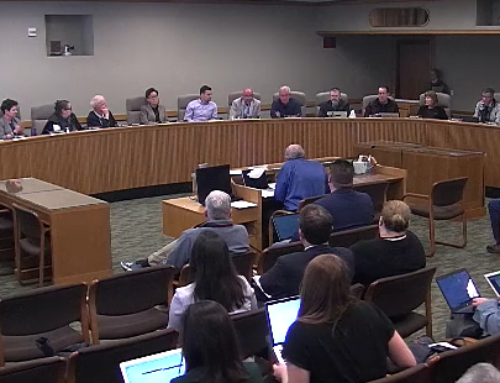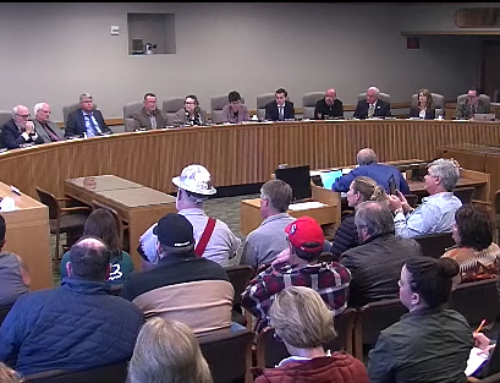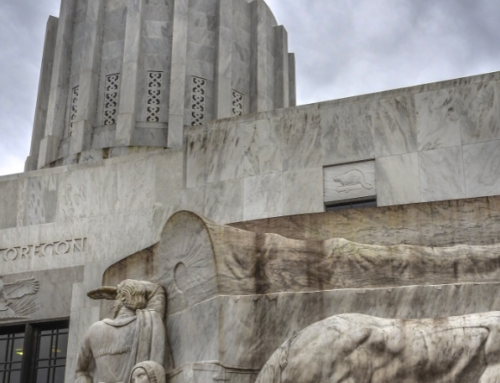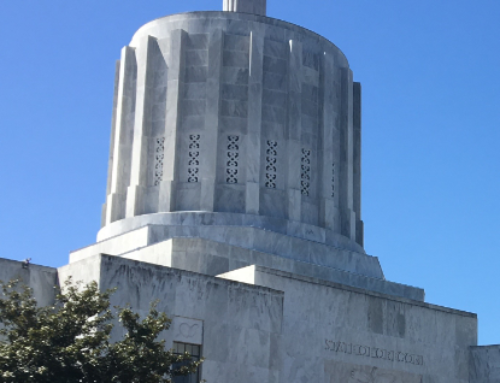Source: Willamette Week By Rachel Monahan
The city tax increase could fund renewable energy projects, raise the profile of a progressive candidate, and complicate state tax efforts.
The key debate in the Oregon Legislature this year is whether to impose a tax on businesses, months after voters rejected a similar idea at the ballot box.
But WW has learned that state lawmakers aren’t the only ones who want to hike business taxes.
In Portland, City Commissioner Chloe Eudaly has joined forces with environmental and social-justice advocates on a potential 2018 ballot measure: a 1 percent city tax on the local gross receipts of businesses with national sales over $1 billion, if those businesses do at least $500,000 in annual sales in the city of Portland.
The proposal would spend the tax revenue it raises on renewable energy projects—like solar panels and community food gardens—in low-income neighborhoods, with a promise to create jobs for women and people of color.
Eudaly’s office sent the proposed measure to Portland revenue officials and city attorneys last month. WW obtained it this week through a records request. It does not say how much money it would raise, but backers say it would raise upwards of $10 million annually.
“Housing is my main issue,” says Eudaly. “It could definitely be argued that climate change is at least as urgent, if not more. Who cares if you have safe, stable, affordable housing if you are living in the midst of environmental devastation? This could be a huge boost to these efforts.”
The proposal shows that left-wing advocates have new levels of access at Portland City Hall since Eudaly’s election—and Eudaly is giving them a bully pulpit.
The proposal is a joint effort by the climate-change group 350PDX, environmental group Sierra Club, longtime environmental lawyer Brent Foster and the NAACP of Portland. And it is likely to boost the political ambitions of Jo Ann Hardesty, who is president of the NAACP of Portland and is mulling a bid for the City Council in 2018, against either Commissioner Dan Saltzman or Nick Fish.
Hardesty, who is acting as the public face of the proposal, says the measure could help meet the city’s climate-change goals while providing renewable energy projects for housing.
“The first year, we could retrofit every low-income multifamily unit within the city of Portland,” Hardesty says. “Portland has a chance to become a national model to make sure we’re addressing both [climate change and racial justice] simultaneously.”
Staff for Portland Mayor Ted Wheeler and Fish said the officials didn’t yet know enough about the proposal to weigh in.
Commissioners Amanda Fritz and Saltzman did not respond to requests for comment.
The proposal, which backers have dubbed the Portland Just Energy Transition, reads like a Christmas wish list for progressive Portland voters: It taxes big businesses to help end the city’s energy dependence on fossil fuels while boosting economic and racial justice, all in one package that could be passed by the City Council or go before voters as soon as May 2018.
But the proposed measure also has the potential to upend the difficult negotiations underway in Salem to address the state’s $1.5 billion deficit.
House Speaker Tina Kotek (D-Portland) this week introduced a plan to make up that expected shortfall with taxes on the gross receipts of companies doing business in Oregon.
If Democrats, who control both houses but don’t have the necessary super-majorities to pass a tax, can’t win Republican votes, they could refer a tax measure to voters.
Last November, voters rejected Measure 97, a $3 billion tax on corporations, by a 59 percent to 41 percent margin.
Observers say a Portland-only tax would further complicate current efforts to address taxes statewide.
Ryan Deckert, a former Democratic lawmaker and now the president of the Oregon Business Association, expressed concern.
“That just makes zero sense,” Deckert says. “This would be a total sideshow to a really important conversation that’s happening in the Capitol right now.”
Hardesty says Portland should proceed regardless.
“Because we know the federal government is not going to come to our rescue anytime soon,” she says, “we can’t wait for the state to get its act together to figure out what they’re going to do.”
Eudaly dismisses talk of competition at the ballot box by emphasizing that the tax is just 1 percent.
“Given that this tax targets large corporations that are already subject to very low corporate taxes and [will] receive double digit tax breaks from the Trump administration, even if legislation went through at the state and local level, it would still only partially offset the Trump tax breaks,” says Eudaly. “I frankly don’t think that’s a legitimate concern.”
The Portland Revenue Division and city attorneys are still weighing the economic impact and legality of raising the city’s business license tax for large companies.
Proponents are seeking to address some of the weaknesses that sank Measure 97, even though it passed overwhelmingly in Multnomah County by a margin of 57 percent to 43 percent. The Portland measure would exempt business revenues from groceries or some medicines, using company tax returns.
That’s a key difference from Measure 97, which faced criticism for taxing essential items.
John Horvick, political director of polling firm DHM Research, says the measure could appeal to Portland voters, but could face resistance if twinned with another, statewide tax proposal.
“Even in liberal Portland,” Horvick says, “there is a limit to any community’s appetite for passing taxes.”





